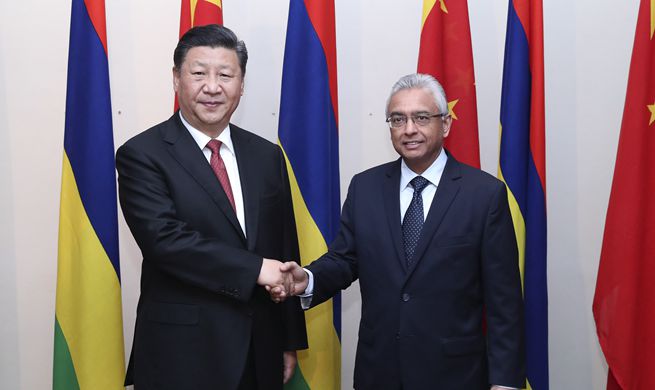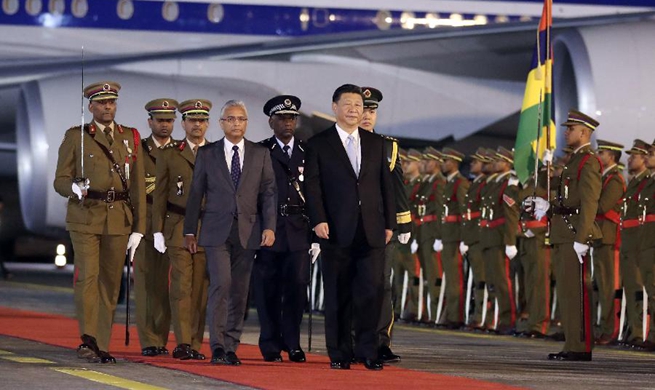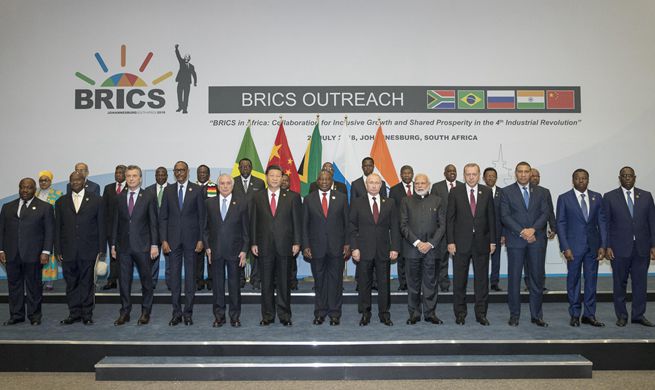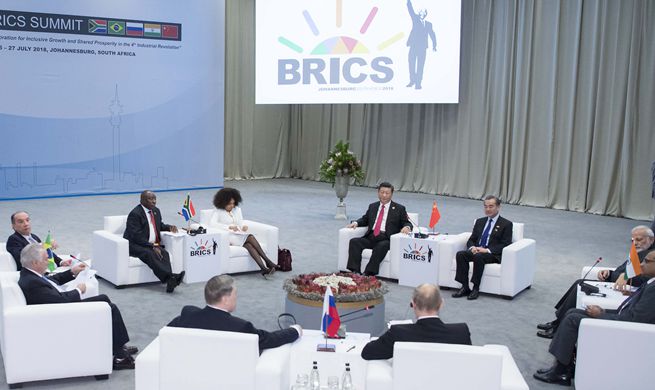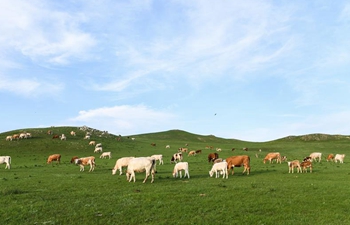BERLIN, July 29 (Xinhua) -- A member of the German Federal Parliament has said the trade deal between the United States and the European Union is only appeasing Washington and has nothing to do with free trade.
"As far as the deal is concerned, it seems that U.S. President Donald Trump has got all he wanted," Petr Bystron, Chairman of the legislature's Foreign Affairs Committee for the opposition Alternative fuer Deutschland (AfD) fraction, told Xinhua in an exclusive interview.
"Whether this is a good deal for the EU, buying American gas and soybean is questionable," said Bystron.
Trump and the European Commission President Jean-Claude Juncker on Wednesday agreed to avoid an all-out trade war. The two leaders agreed to work together toward zero tariffs, zero non-tariff barriers, and zero subsidies on non-auto industrial goods.
In addition, Trump's threat to impose tariffs on European cars was put aside, and the EU planned to buy more U.S. liquefied natural gas (LNG) and soybeans.
In the eyes of Bystron, Trump is more a businessman than a politician and his administration's trade policy is consistent with America's traditional cowboy style.
"You know how the country developed, they were cowboys... they first shoot and then they look, ok, now let's talk," Bystron quipped.
"If you transform it in the modern business world ... the United States at first just makes the pressure, and they argue from the position of strength, and then they negotiate," he said.
Despite criticizing Washington's arm-twisting on the trade issue, Bystron said his party was in favor of EU reducing tariffs and trade barriers as well, since the EU farm subsidies and tariffs hurt developing countries in Africa and create poverty and migration pressure.
"The EU needs to open its markets to real free trade," said Bystron, adding that the EU now has over 12,000 different tariffs on different products.
As for the global trade system in the future, Bystron said all countries need to work together to ensure free trade, peace and prosperity in the world.
"It is most important to listen to each other and understand where each country is coming from, whether with the EU or in relations with the USA, Russia and China," he said.






